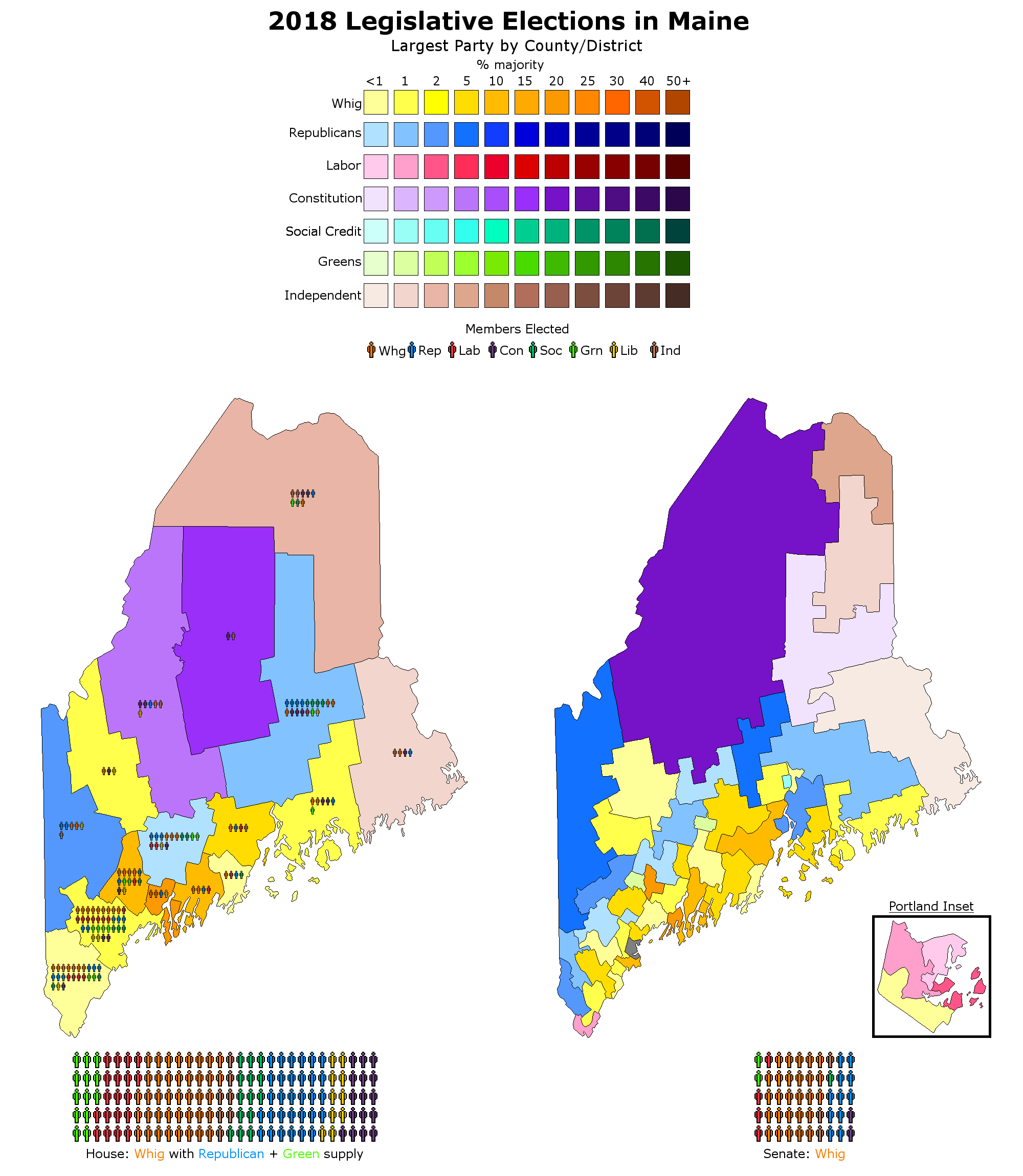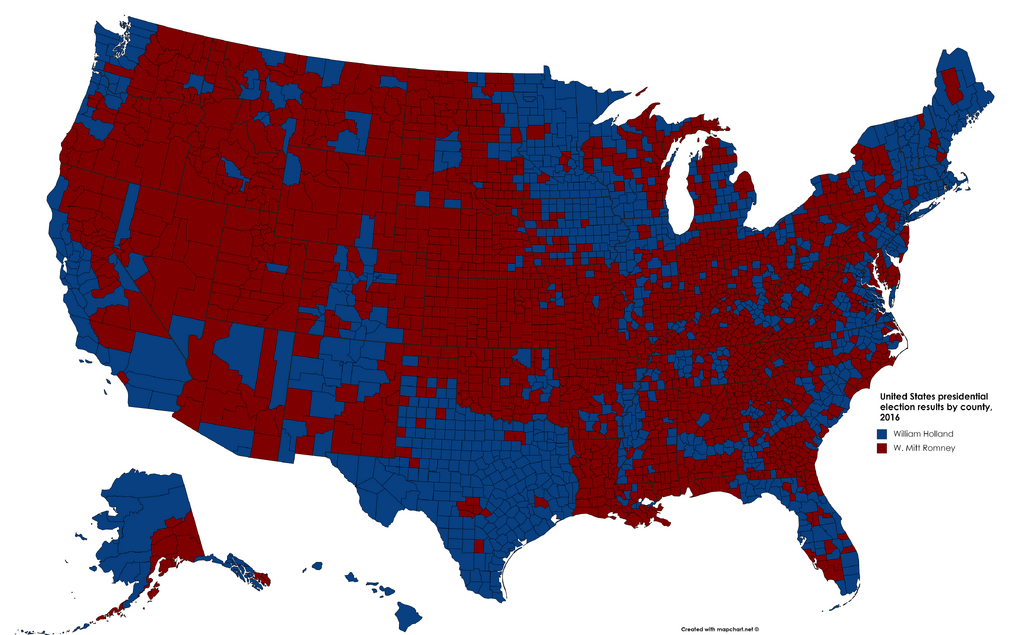The Seventh Party System: Part XXXVII
Map of the United States
Part I - Metropotamia
Part II - Alta California
Part III - North Carolina
Part IV - New Jersey
Part V - Adams
Part VI - Alabama
Part VII - Rhode Island
Part VIII - Sequoyah
Part IX - Assenisipia
Part X - East Florida
Part XI - Tennessee
Part XII - Kansas
Part XIII - Dakota
Part XIV - Arizona
Part XV - Delaware
Part XVI - Oregon
Part XVII - Ozark
Part XVIII - New Hampshire
Part XIX - Western Connecticut
Part XX - New York
Part XXI - Santo Domingo
Part XXII - South Carolina
Part XXIII - Baja California
Part XXIV - Chersonesus
Part XXV - Canal Zone Territory
Part XXVI - West Florida
Part XXVII - Missouri
Part XXVIII - Colorado
Part XXIX - Trinidad and Tobago
Part XXX - Pennsylvania
Part XXXI - Wisconsin
Part XXXII - Lincoln
Part XXXIII - Deseret
Part XXXIV - Platte
Part XXXV - Kiribati
Part XXXVI - New Mexico
Maine has always been an interesting paradox, being known for both its moderate Republicans and extremist right wing, its dominant party system and its large multitude of secondary parties underneath, a state both stuck in the past and the cutting edge of the future and in 2018 these contradictions butt heads together in a spectacular display.
In order to understand Maine's contradictions, one must first know the history of their political system. Ever since its inception Maine had been a swing state, becoming a battleground for the Democrats and the Whigs, the Democrats and the Republicans, the Progressives and the Republicans, and then the National Unionists and the Republicans. This lead to the popular idiom "As Maine goes, so goes the nation." However when the Conservative Revolution and the following Democratic Coup splintered America's major parties everything changed. While the base of the Republican party, cosmopolitan middle class and upper class Americans had remained undivided the National Union had been irrevocably shattered, with the young activists moving to the Greens, the loyalist working class forming Labor, the conservative working class forming Social Credit, and the patriotic jingoists jumping ship to Constitution. While the Republicans also faced defectors of the religious sort to the Constitution, as well as those extreme right wing economics to the Libertarians, their voter base had a strong plurality which was unbeatable by any other party.
Thus, while the Republicans would always make supply and confidence agreements in the House in the Senate the use of FPTP allowed them to hold eternal majorities that often exceeded 66%. In this sense Maine became known as a contradiction of diverse parties as well as a monolithic ruling party.
This Republican dominated system would first be challenged in 2010, when the Second Great Depression swung the middle class over to Labor, resulting in the very first non-Republican plurality since the Conservative Revolution. Yet even with a Labor lead government in the House the Senate retained its solid Republican majority, resulting in a vote of no confidence that prevented a Labor government, resulting in a Republican lead one in 2011.
However this defense had still come at a grave cost, as more and more voters began to see the Republican party as more interested in simply holding onto power than governing. As the Second Great Depression continued to linger on with end this distrust turned into pure anger as anti-establishment on both the left and right began to rise. This lead to the election of 2015 resulting in a record number of Greens, Independents, and Libertarians which voted down any attempts to form a Republican government. Unfortunately for the anti-Republicans the disorganization of the opposition prevented any party from taking the Republicans place, and once again the Republicans ultimately managed to retain power by calling another election in 2016.
With both the left and the extremists having been unable to end the Republicans 42 year long reign, retired Republican Angus Cutler, sought to try a new approach, radical centrism. Seeking to emulate the success of the Moderate Moose Party in Rhode Island he aimed to lead Maine down a path of social liberalism and Third Way economics to moderate the right ward shift that the Republicans had underwent through their alliance with the Constitution party. Prior to the elections of 2010 the Republican party of Maine had been just as moderate as the rest of New England. However under the leadership of Governor Susan LePage the party began to worship the cult of austerity, regressing to the levels of the Great Plains Republicans by ending all unemployment benefits and abolishing its public pension system. With everyone from moderate Republicans to senior citizens outraged at these levels of privatization support for Angus Cutler as Maine's key to bringing back centrist conservatism.
However even Angus Cutler himself was shocked at just how successful his Whig Party turned out to be, capturing a staggering 27 seats to capture the Senate in its entirety, while also winning a plurality of the seats in the House. With the Republican party reduced to a shell of its former self Party Leader Susan Page resigned in failure and Deputy Leader Ernest Cianchette agreed to a humiliating supply and confidence agreement with the Whigs, winning in return for the sole concession not to raising income taxes.
As such, for the first time since the Conservative Revolution the Republican party had been unseated from power, and with Cutler moving Maine towards MMP it now became the dominant electoral system for upper houses in New England. Coupled with gains by Republicans in more Western branches the Eastern Establishment now faces a severe identity crisis between the more moderate Dewey Republicans and more conservative Buckley Republicans.
Government:
Whigs - Named after the Whig-Labor party of Delaware it is a radically centrist party formed by former Republican Governor Angus Cutler. After Cutler saw the economic extremism of the GOP under Susan LePage he viewed a new centrist party as the only solution to bring back moderate policies to Maine. By not only bringing back unemployment benefits and the pensions system, but also reforming the senate to a more fair MMP system the Whig party has risen dramatically in popularity and may even win an absolute majority in the 2020.
Supply:
Republicans - The party of economic conservatives and social moderates the GOP of Maine underwent a sharp right turn through a program of extreme austerity in an attempt to combat the Second Great Depression. However this austerity only heightened Maine's poverty and with the highest unemployment rate of all Northeastern states the Pine Tree State's economy has fallen into ruin. This loss has also had nationwide effects as it has left the Eastern Establishment of the GOP in a very vulnerable state nationally, and many speculate that the long forgotten conservative majority might launch a coup against the socially liberal leadership in a fight over the very soul of the Republican party.
Greens - A socially liberal with left of center economics they represent the growing environmental movement of Maine. In this year's election they were able to win seats in the Senate for the first time due to the split between Whigs and Republicans as well as Social Credit and Labor. And with Angus Cutler vowing to add more environmental regulations the Green Party of Maine are happy to see their movement gaining real success.
Opposition:
Labor - The traditional party of the working class, they have suffered greatly in Maine due to left wing splits from the Greens and right wing splits from Social Credit. Nevertheless, they still slightly edge out both parties, and despite losing voteshare in the 2018 election they actually managed to win Senate seats for the first time since 2011 due to splits in the Whig and Republican voting rendering the GOP's gerrymandering efforts useless.
Constitution - The farthest right party in Maine they are the party of deeply religious protestants who value the Bible over the law. And despite a significant minority of their voters being former National Unionists the party is also extremely right wing economically and wants for a government so small that Churches can overpower it. They managed to get alarming close to such a vision as a result of their alliance with the Republicans from 2011 to 2018. Having their seat total been reduced due to surging turnout for the Whig party by formerly apathetic voters the Constitutionists will now have to wait in the shadows again and hope to retake power one time when the general public gets too apathetic again.
Social Credit - A center of right party which advocates for an isolationist America that focuses on the needs of the white working class they have gained massively in the state of Maine with its 95% white population being largely indifferent to the needs of non-white America. In this election they managed to gain a few seats in the House as well as their first seat in the Senate, yet with their ideological opposites, the Whigs, having now gained power the party is steaming with indignation.
Libertarians - A right wing party which has mostly socially liberal views besides for the belief that life begins at conception and feminism is a socialist conspiracy, they have been growing steadily in popularity ever since the start of the Second Great Depression, claiming that the Republicans are too cozy with Big Business and that only "pure" capitalism can solve the economic crisis. However the Libertarians are still not as popular as in neighboring New Hampshire and have yet to truly break through into mainstream politics.
Independents - A collection of minor localist parties, Maine's swing state attitudes have allowed minor parties to thrive in the rural backwaters of the state. While these politicians can vary all the way from far left to far right most remain ideologically identical to the Republicans and in close elections like 2011 they willing sell their votes away to the GOP in return for earmarks that benefit their hometowns.





